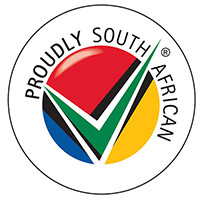By Eustace Mashimbye
IN SEPTEMBER, the nation celebrates heritage month, and Heritage Day tomorrow, the identities of South Africans as well as the collective identity of our nation.
It is through this spirit of unity in diversity that we need to work together to promote and celebrate South African manufactured goods and services. This clarion call to collaborate on the mission of localisation goes out to business and individuals alike, even those who offer similar services.
Prompted by the drive in the government's Economic Reconstruction and Recovery Plan for greater levels of localisation and local procurement, the Competition Commission's guidelines for collaboration between competitors on localisation have been issued. Designed to assist local manufacturers collaborate with each other without transgressing the Competition Act 89 of 1998, as amended, the guidelines are simply that and have not yet been finalised.
The public sector is already legislated via the Preferential Procurement Policy Framework Act to procure a total of 27 (broad) items with various local content thresholds from local manufacturers. We know through Proudly South African's internal tender monitoring system that compliance levels remain extremely low (under 50 percent), but the auditor-general has been given and entrusted with the powers not only to raise adverse findings against offending public entities, but also the capacity to recommend legally binding action against them.
This, in theory, safeguards local manufacturers in those industries in which items are designated (including TV set-top boxes, wheelie bins, rolling stock, among others).
The private sector, however, cannot be compelled via legislation to give preference to local procurement, and so these guidelines provide a means through which industries can "self police", assess, monitor and report among themselves on import replacement.
The guidelines fall into four categories, namely the identification of opportunities for localisation at industry sector level, the setting of industry level, then individual company level localisation targets, and the forecasting of future collective demand for a product among users to assist suppliers in gauging their capacity for production.
In all cases, the role of a facilitator in the process of gathering and aggregating inputs is prescribed, thereby mitigating the risks faced by manufacturers of sensitive and confidential information specific to their enterprise being disclosed.
The various sectoral master plans which have been drawn up, with the collaboration of the government (the dtic), organised labour and industry stakeholders in the poultry, automotive, clothing and textile including footwear and leather, furniture and steel sectors as well as sugar industry, have paved the way in part for these guidelines insofar as they have brought all industry-related partners together around the table to work with a common interest to find a way forward for the growth and transformation of each sector.
This has opened dialogue between companies that may have different priorities and which lie at different points in any specific industry's value chain, and so a further pooling of information regarding localisation supply and demand is a logical next step to protect and grow our local manufacturing sector, which remains the largest source of jobs in the country.
There is naturally some hesitation regarding the security of the kind and level of information that companies may be required to share, but providing an assurance that this is safeguarded, there should be no reason not to combine all the skills and production capacity resources of a single sector and for stakeholders to work in harmony to face the challenges of imported goods flooding the South African market.
Import replacement and industry/ sector-specific localisation commitments are something which Proudly South African, as the country's official buy local advocacy campaign, has been working on actively for the past two years and more. We have solicited commitments from, among others, the banking sector, education and medical/hospital groups to review their procurement processes in favour of local suppliers of goods and services.
Local suppliers would benefit enormously from knowing what levels, if they were called upon to replace imports, they could make provision for in their manufacturing lines, and in applying for funding for the expansion and acquisition of equipment, for example. Information sharing by buyers would provide them with that information.
And collaboration works in both directions. Perhaps those companies that supply steel companies with raw materials themselves require massive amounts of office furniture, or uniforms and protective clothing, and so they would both be benefiting from giving and sharing information about their own supply chains.
Proudly South African is still weighing up all the implications of the guidelines and will be making its inputs by the cut-off date on September 27.
What is clear, however, is that localisation is now well and truly on the map of both the public and private sectors and is being recognised as the force for economic growth and job creation that we have been propounding for the 20 years we have been in existence. And these guidelines will help us avoid what the now late music legend Tsepo Tshola, aka "The Village Pope", referred to as Madambadamba, in his hit song, which loosely translated means a "mess of monumental proportions".
Eustace Mashimbye is the chief executive of Proudly South African.
*The views expressed here are not necessarily those of IOL or of title sites.


